Princess Chang Ping
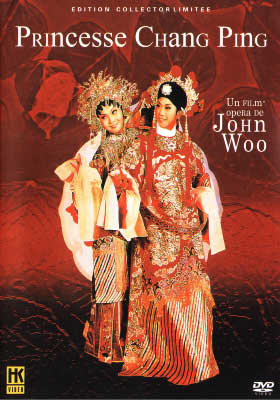
Director:
John Woo
Year: 1976
Rating: 7.0
Perhaps
it is just coincidence, but the great Hong Kong action director Chang Cheh
began his career at Shaw Brothers with a Chinese Opera film, The Butterfly
Chalice. This was after two previously directed films elsewhere. So did John
Woo with this film - after two other action films. Woo was a protege of Chang
Cheh and has said he is most proud of this film. And in a sense, it is understandable.
He grew up on wuxia and Opera performances. These were the bedrock of Chinese
historical culture - the courage, sacrifice, ritual and splendor. You grew
up hearing opera on the radio and reading wuxia in comics.
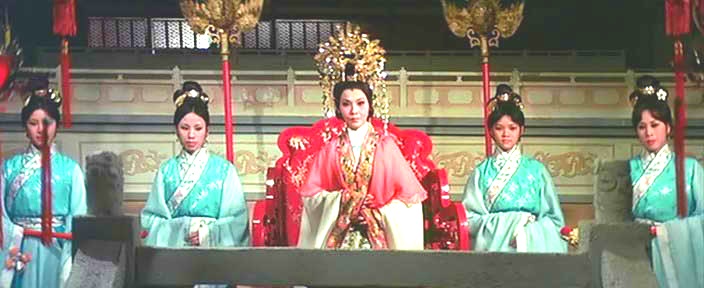
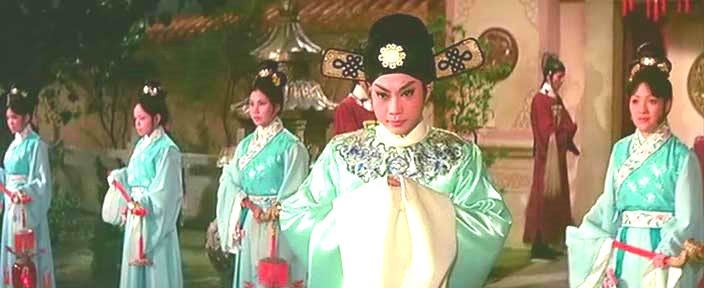
It is a stunningly beautiful film with ornate
sets and costumes. Colors that burn your eyeballs. It is quite different
though from the Huangmei Chinese Operas made for Shaw. First it is in Cantonese
while theirs were in Mandarin and Shaw had much bigger budgets than this
Golden Harvest production. They were epic and grand with very popular actors
starring in them and singers dubbing for them. The music though of the Opera
style is a softened version with lovely melodies. The performers in this
film are real Opera performers and the music makes no allowance for popular
taste. Just the way they move is different - often seemingly floating across
the floor with their small rapid steps and very formal gestures. I will admit
it takes some getting used to. The Princess's singing could crack walnuts,
but eventually you find yourself sinking into it. It is a great tragedy based
on history.
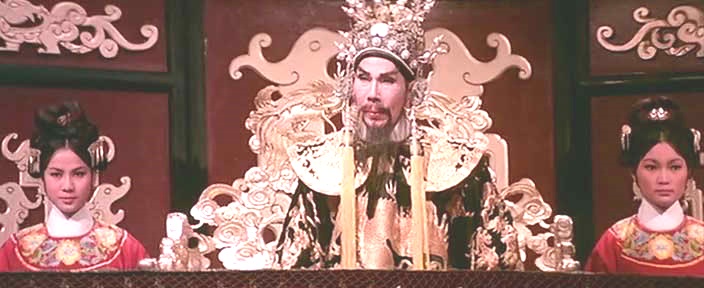
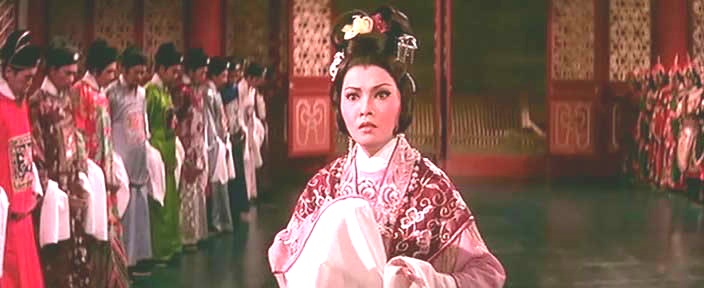
Princess Changping was the daughter of the
last Ming Emperor, Chongzhen. She was engaged but it was bad timing as the
Manchus stormed the city. The Emperor had his family killed so that they
would not fall into Manchu hands and hung himself. He cut off the arm of
Princess Changping, but she survived. She asked to be able to go to a nunnery,
but the new Emperor refused and married her off and she died in pregnancy.
Or did she? Myth has been built around that saying that in fact she survived,
learned martial arts and led a Ming rebellion. Called the One-Armed Divine
Nun. It is certainly a cool idea. There have been TV shows about her
as well as a few films and in novels by Louis Cha. This film is much more
traditional following in the footsteps of the 1959 Tragedy of the Emperor's
Daughter directed by Wong Tin-lam (according to one source). That version
starred two of the greatest Opera singers in Chinese film - Pak Suet-sin
and Yam Kim-fai.
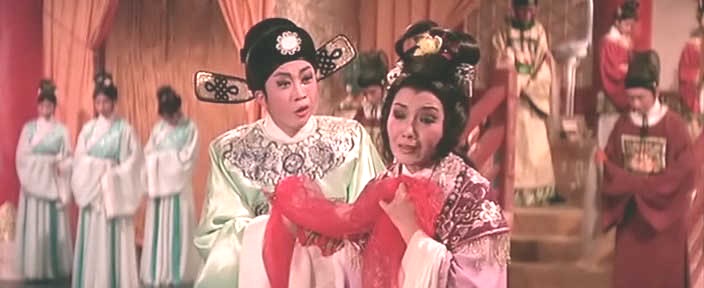
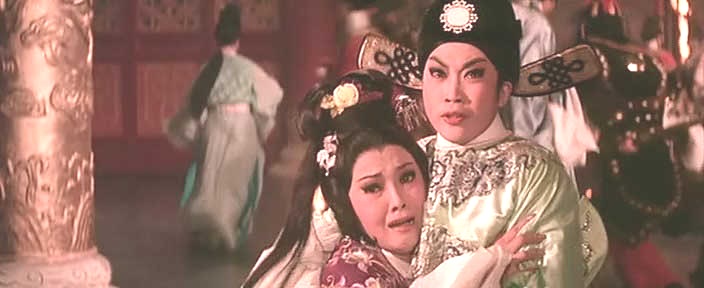
The film doesn't really follow the history
all that accurately, but it stays close. More tragic and romantic. Scholar
Chou Shih Hsien (Lung Kim-sang) comes calling on Princess Changping (Mui
Suet-sze) and a battle of words ensues - showing his wit and quickness. He
is of course in true tradition played by a female actress. Love comes faster
than room service and Chou goes to get the permission of the Emperor. After
it is granted and love and happiness are on the horizon, word comes that
the damn Manchus are at the gate (a little bit of the action is shown by
Woo). The King hands out Red Ribbons to his wife and concubine to hang themselves
with. He stabs one daughter in the stomach and slices Changping.
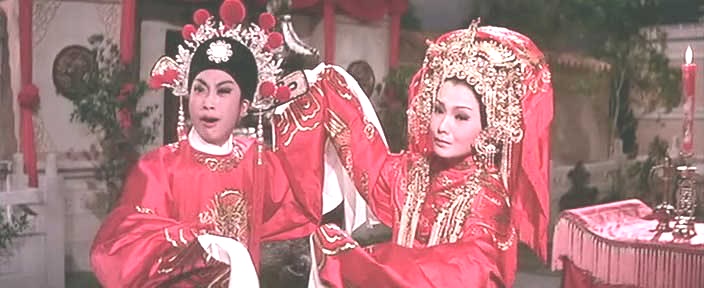
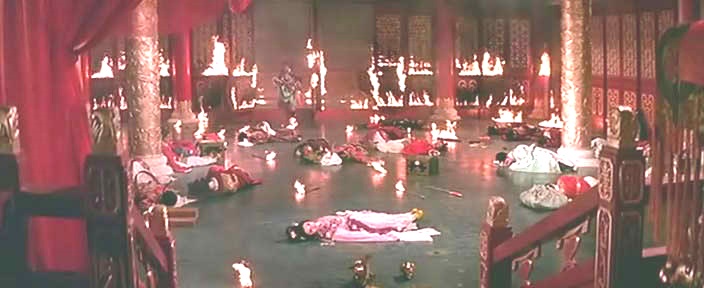
But she lives and is hid by one of the Emperor's
men. Till he figures out that handing her in will bring him status in the
new court. She overhears and runs for the convent and becomes a nun. But
Chou happens to pass by about a year later and spots her as does a servant
of her betrayer and song and tragedy follow. It took me three times till
I finally got past the opening scene. Mui Suet-sze's voice really grates
but I would promise myself that I would return at some point when I was made
of sterner stuff. I finally did and by the end it is quite lovely. Woo went
on to make Hand's of Death. His Chinese Opera was out of his system. There
is a very nice copy of this on the Internet somewhere with subs.









